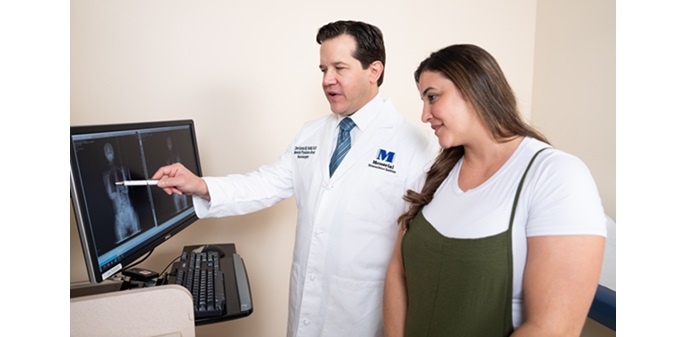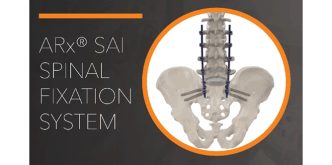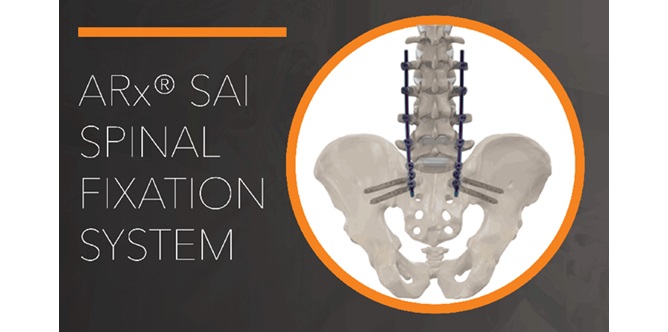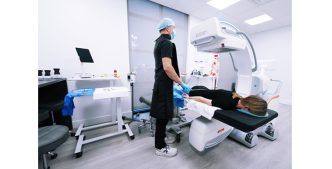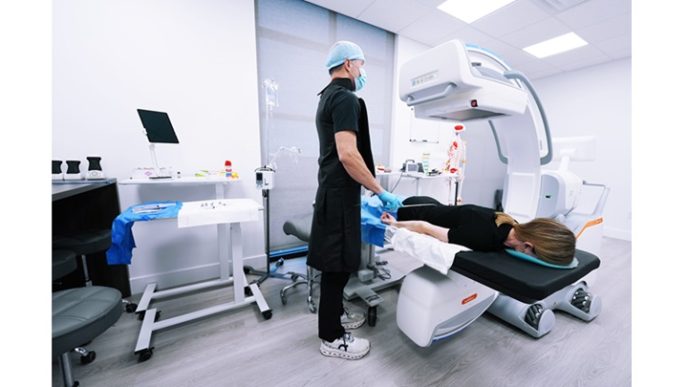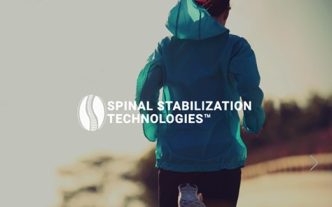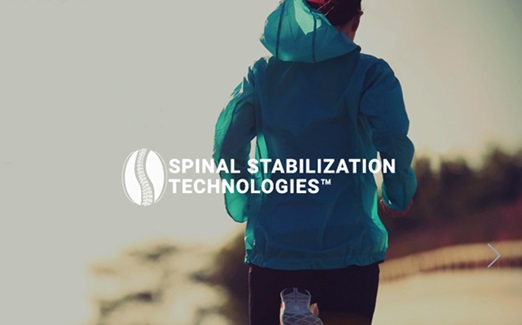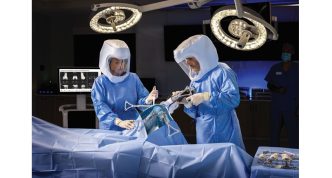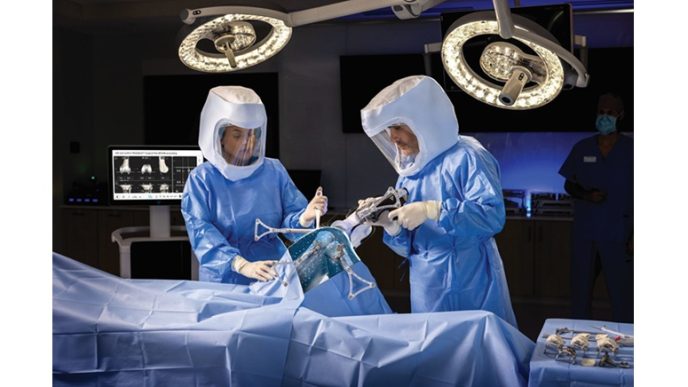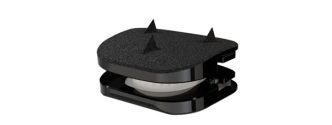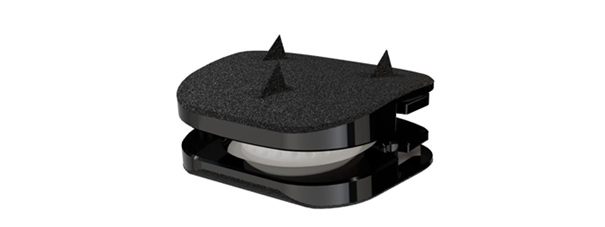Dr. Clinton Burkett, Tess Buchanan
HOLLYWOOD, Fla., Feb. 25, 2025 /PRNewswire-PRWeb/ — The pain, unbearable as it was, wasn’t even the worst part for Tess Buchanan. For the Fort Lauderdale mother of four, there was a greater cost to the untreated scoliosis that had plagued her since childhood. “My kids would fall asleep and I couldn’t even lift them to take them to their beds.”
Buchanan was initially diagnosed with an abnormally curved spine as a teenager, a condition that worsened in adulthood after pregnancies and a car accident. A teacher at the time, it became difficult for Buchanan to stand for long periods, and even walking was a challenge. Still in her 30s, Buchanan often felt like an 80-year-old. At her wit’s end, she researched specialists and found Dr. Clinton Burkett, a neurosurgeon at Memorial Neuroscience Institute.
“We started Tess with non-operative treatments that included physical therapy and pain management, but it soon became clear that wasn’t providing the relief needed to live a normal life,” said Burkett, a fellowship-trained surgeon. “She ultimately required a thoracal lumbar fusion.”
The work to correct Buchanan’s idiopathic scoliosis required three specialists and two surgeries. Dr. David Smolar, a neurosurgeon that specializes in adult spinal deformity, and Dr. Eduardo Rodriguez Zoppi, a vascular expert, joined Dr. Burkett in the operating room and began with Zoppi manipulating blood vessels that provided Burkett access to the front of the spine for that part of the fusion. That enabled Burkett and Smolar to loosen and then straighten Buchanan’s spine from the rear by using screws and rods to fuse it from the ribcage to the pelvis. The hardware will provide the stability necessary for bone that needed to be broken to correct the curvature to regenerate over the course of a year. “We were aided by the latest technology, including intraoperative CAT scans, x-ray, and navigation systems, which ensured every screw was placed correctly,” said Dr. Smolar. “Memorial is one of the very few facilities in South Florida fully equipped to do the surgeries Tess required.”
The multi-disciplinary approach, which included the collaboration between Memorial’s cardiac and vascular and neuroscience institutes, delivered not only the outcome Buchanan hoped for, but did it while limiting the time she spent under anesthesia, leading to a quicker recovery. Out of bed and walking 24 hours after the second procedure, Buchanan didn’t need a rehab facility or physical therapy. “Even my scar is beautiful,” she joked.
Now coming up on the all-important year after the April 2024 surgeries, Buchanan is feeling like herself again and doing what’s most important to her. “I’m able to carry my kids, even the six-year-old who weighs a lot more than the toddler.
It’s wonderful just to be normal. I feel like I’ve been given my life back.”
Memorial Neuroscience Institute offers advanced diagnoses, comprehensive treatment, compassionate care, and rehabilitation for complex neurological conditions. Few centers can match the depth of its neurological expertise or the wide range of available services.
Part of the Memorial Healthcare System and recognized for its quality and safety, the institute treats conditions of the brain that include Alzheimer’s and Parkinson’s disease, multiple sclerosis, tumors, epilepsy, stroke, and subarachnoid hemorrhages, as well as issues of the neck, back, and spine.
To learn more about the complete continuum of neurological care Memorial provides, visit http://www.mhs.net/services/neuroscience.
Media Contact
Yanet Obarrio Sanchez, Memorial Healthcare System, 954-265-1136 newsmedia@mhs.net, https://www.mhs.net
SOURCE Memorial Healthcare System
Image Credit: (PRNewsfoto/Memorial Healthcare System)


